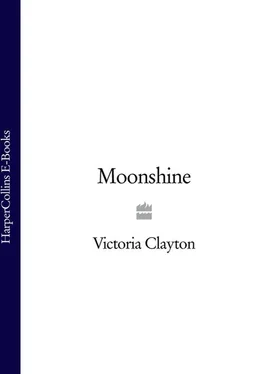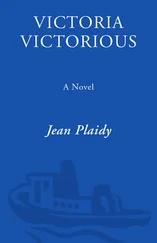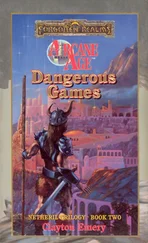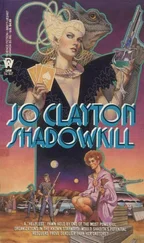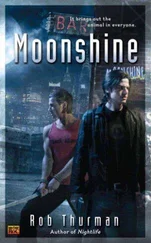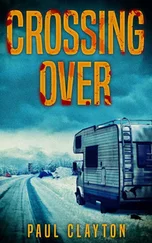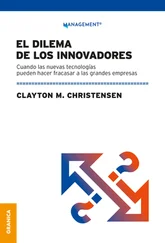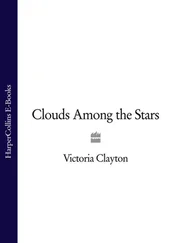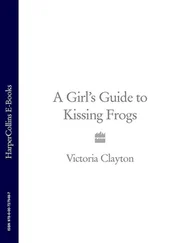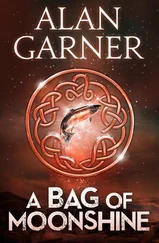‘What do people do here?’ I asked. ‘I mean, to earn a living.’
‘Oh, they farm mostly: smallholdings not quite big enough to sustain the inevitably large families. Galway’s coming up fast and there are good jobs there but the country people are reluctant to leave a way of life they’ve always known. You can understand it.’
‘Oh yes. But the fields look so stony. There are great lumps of rock sticking out of them. Surely it must be difficult to plough?’
‘Impossible in some places. The limestone pavements are famous for rare wild flowers – gentians, orchids, ferns – but of course you can’t eat those. People used to grow potatoes by making what are called “lazy beds”: scraping the earth into little heaps of a few square yards to get the required depth. In the good years when there was no frost or famine, the average Irish peasant ate fourteen pounds of potatoes a day.’
‘You’re making it up! No one could eat that many.’
‘Truthfully. Many families existed on an exclusive diet of potatoes and buttermilk. And poteen, of course. That’s home-brewed whiskey.’
‘But surely on such an unvaried diet they’d be ill?’
‘On the contrary, they were the healthiest people in Europe. Boiled potatoes and buttermilk provide all the nutritional needs of a full-grown labouring man. There were herrings and seaweed for those who lived near the coast.’
‘But think of the terrible boredom of eating the same thing day in and day out!’
‘Ah, but boredom is the luxury of affluence. You must remember that some of the country people were so poor their clothes were hardly more than rags. It’s all about expectations, isn’t it? They considered themselves as rich as kings if they could afford a pig or two, a cow and a few hens. All around them were living examples of what happened if you couldn’t pay your rent. You were evicted and the roof was pulled off your houses. So you were forced to live in what were called scalpeens: hovels pieced together from a bit of corrugated iron here, an old door there, without windows, without chimneys even. Then you were too hungry, too cold, too miserable to be bored. When the potato blight destroyed your crops you and your children lay down in your hovels and died of starvation or typhus and your bodies were picked clean by foxes and crows.’
‘And the landlords did nothing to help them?’
‘What you must understand is that the vast majority of landowners were of English or Scots origin. They’d got their Irish estates through the land confiscations of the sixteenth and seventeenth centuries. Ireland was – still is, to some extent – two nations, divided not only by poverty and riches but also by religion, politics, language and culture. The bosses, the Protestant Anglo-Irish, saw the Catholic peasants as feckless, idle and dishonest. The old Irish naturally hated the usurpers, their masters.’
‘Were they all – the bosses, I mean – callous and greedy?’
‘There were some conscientious landlords. They waived rents and set up soup kitchens. But a lot of landowners had larger, more important estates in England. Some never set foot in Ireland. They didn’t give a damn about the peasants who worked and starved to provide the rent money on which the landowners – in the old days anyway, before the eighteen eighties – grew fat. After the Great Famine years of eighteen forty-seven to eighteen forty-nine some landlords chartered ships to take their tenants to America to start a new life.’
‘I suppose that was better than nothing?’
‘It was cheaper to send them abroad than to pay for their keep in the workhouse. But the conditions on the boats were so bad that they were called coffin ships. At least half of them died on the journey.’
I tried to imagine what it must have been like: the ravaging of the flesh by hunger and cold and disease. Watching one’s children suffer and being powerless to help them. Being uprooted from home and family, enduring appalling hardships to land in an alien place among alien people. Knowing that the prosperous world was indifferent to one’s pain and grief. It made my own unhappiness seem contemptible. I resolved to say not another word of complaint about my own misfortunes.
‘And now? What about British presence in Northern Ireland? Should we stay or go?’
‘Ah! That’s a hard one. And I’ve lectured you long enough.’ Despite my assurance that I wanted to hear more, he changed the subject. ‘See that ruin on the hill-top?’ I looked obediently to my left. A row of Gothic arches stood proud against a Constable sky, smudged with shades of grey and indigo as clouds gathered. ‘That’s all that remains of a once magnificent Palladian mansion and a substantial demesne. That’s just the folly, the eye-catcher, which no one could be bothered to blow up or burn down.’
‘Where’s the house?’
‘Among those trees. I went to look at it last time I drove up here. It’s nothing but walls and glassless windows now, and chimneys colonized by crows.’
‘Oh, what a pity! There’s a foul little bungalow slap-bang next to that exquisite stone gateway. And an electricity pylon on the other side. It should never have been allowed!’
‘You can’t expect the Irish to be exactly fond of the glory of the Ascendancy.’
‘No. But beauty, no matter how degenerate its creator, is still precious, isn’t it?’
‘If it’s a reminder of injustice and misery, it may no longer be beautiful.’
‘Surely the making and preservation of fine buildings is one of the great consolations for man’s sorrows?’
I must have allowed more indignation to appear in my tone than I had intended for Kit laughed and said, ‘You’re absolutely right. Don’t be cross. I’m only trying to see the other point of view. Playing devil’s advocate.’
‘I’m not at all cross with you . How could I be when you’ve been so kind? What happened to the house and the family?’
‘It was burned during the Troubles.’ Kit paused to negotiate with an oncoming lorry for the left-hand side of the road. ‘The family went to live in England. The people who live in that bungalow you so despise are the descendants of a long line of stewards who looked after them. They were very friendly and keen to show me round. Ironically, they were proud of the majestic ruins which they seemed to feel gave them a reflected status.’
‘What was the point of it then? What good did it do to burn the house and presumably destroy the livelihoods of all the people connected with a working estate?’
‘Good? No good at all, I should say. If you’re going to get on in Ireland you must be prepared to abandon notions of cause and effect. Other things are more important, like love and generosity and good fellowship. And drink, of course.’
‘It doesn’t seem to me particularly loving or generous to burn someone’s house down.’
‘Ah, you’ll understand in time. Logic’s of no possible use to you here. Forget all about it and you’ll be much happier.’
I wished I could be happy. I wished I could rid myself of a sense of loss that weighted my limbs with despair. But I reminded myself that my problems were trivial.
‘What’s up, Bobbie? Suddenly you look as though you’ve swallowed a bitter pill.’
I had taken it for granted that Kit’s eyes would be on the road ahead. He might claim to be an idle dreamer, but in fact he was sharply observant.
‘Oh, nothing.’ I smiled. ‘Just … I was wondering if my new employers have been reading the newspapers. They may well recognize me as a woman steeped in sin and hurl me out on my ear.’
‘In that case you’ll ring me from the nearest telephone box and I’ll come and rescue you.’
This was reassuring. But I was conscious of getting deeper in Kit’s debt. We stopped at a hotel in the town of Williamsbridge for tea. It was called, inaccurately, the Bellavista. The sitting-room windows looked across the car-park to the public lavatories. They had run out of sandwiches but there was cake, a sort of spiced bread called barmbrack. It was stodgy but I did my best to get some down, knowing that a few calories can do a lot for one’s mood.
Читать дальше
